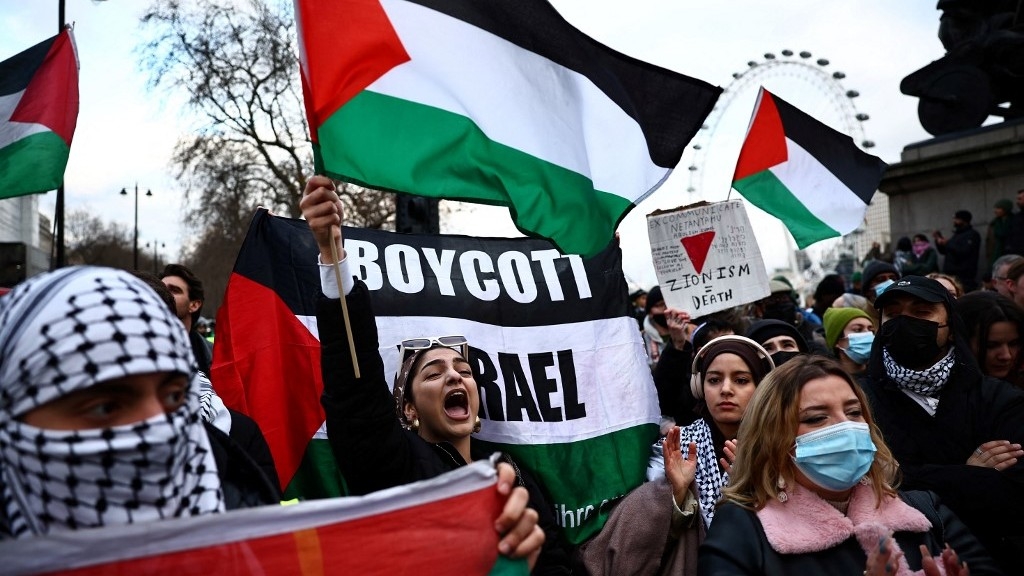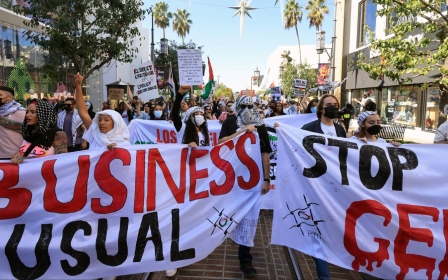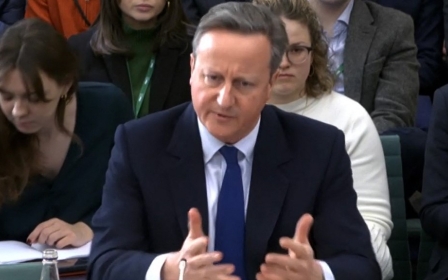British MPs pass bill barring public bodies from boycotting Israel

A bill banning public bodies in the UK from disinvesting in Israel over concerns about the abuse of Palestinian rights passed its final reading in parliament on Wednesday.
After a 282 to 235 vote, the Economic Activity of Public Bodies (Overseas Matters) Bill will now move to the House of Lords, where it is expected to receive stronger scrutiny.
The bill outlaws support for civil society campaigns targeting Israel, such as Boycott, Divestment and Sanctions (BDS), and has been criticised by pro-Palestinian groups and human rights organisations.
The vote came a day before Israel faced charges of genocide at the International Court of Justice in a case brought by South Africa.
The UK parliamentary committee scrutinising the bill last year heard testimony from columnist Melanie Phillips and pro-Israel lobbyists, but did not invite Palestinian supporters to give evidence.
New MEE newsletter: Jerusalem Dispatch
Sign up to get the latest insights and analysis on Israel-Palestine, alongside Turkey Unpacked and other MEE newsletters
"Public bodies, including the local government pension scheme and local authorities, should not be taking decisions that conflict with UK Government foreign policy," said Michael Gove, the minister who has pushed the plan, ahead of the vote.
Eight Conservatives voted against the legislation, pledged in the 2019 Tory election manifesto, on the grounds that it represses free speech and breaches international law. They were joined by 160 Labour MPs, 13 Liberal Democrats and 40 Scottish Nationalists.
Kit Malthouse, one of the Conservative MPs who voted against, said he was concerned with the bill's conflation of Israel with the occupied Palestinian territories and the Golan Heights.
For this reason, Malthouse said that he and others MPs believe the bill contravenes international law and could undermine UK undertakings at the UN.
"That is a cause of great dismay to our allies in the Arab world, who of course we need at the moment more than ever to join us in seeking peace in the dreadful conflict taking place in the Middle East," he said.
"That we should undermine our own status as fair dealers, as it were, in that part of the world seems to me an unforced error."
Labour opposed the bill, with Shadow Middle East Minister Wayne David writing that the party had consistently opposed the BDS movement, which he said had been used as a cover “to whip up hate towards Jewish people” but that the draft law was “riddled with problems and contradictions”.
Deputy Labour leader Angela Rayner echoed his position.
"There is a difference between applying consistent ethical principles and legitimate criticism of foreign governments, and what some have tried to do by targeting just one individual state- for example, the world’s only Jewish state," she said.
"Or, worse, using the cover of these issues to whip up prejudice or discrimination. That is completely wrong."
But other Labour MPs said they opposed the bill full stop, including Andy Slaughter, who said it was harmful to Britain's reputation around the world, to human rights and to citizens' freedom of speech.
Slaughter said he hoped the bill would be defeated and, if not, that it "will not see the light of day before a general election. It certainly should not. It would be a shameful legacy, even for this government."
Middle East Eye delivers independent and unrivalled coverage and analysis of the Middle East, North Africa and beyond. To learn more about republishing this content and the associated fees, please fill out this form. More about MEE can be found here.




